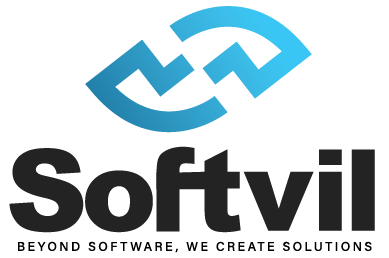In the ever-evolving digital landscape, businesses must adapt to the rapid changes and advancements that shape our world. One crucial aspect is software product development, which plays a vital role in staying competitive. However, creating top-notch software products requires a skilled and dedicated team proficient in various technologies, programming languages, and software development methodologies. This article highlights the advantages of hiring a dedicated software development team for product development and emphasizes the need to embrace this approach for achieving efficient and successful outcomes.
Revolutionizing Product Development
The software development industry has witnessed a transformative revolution in recent years, demanding businesses to re-evaluate their strategies. In this context, dedicated software development teams emerge as the ideal solution. By engaging a dedicated team, businesses gain access to a group of highly experienced and qualified professionals who work exclusively on their projects. This approach fosters increased control, flexibility, and scalability, ultimately leading to streamlined and successful software product development. This article explores the benefits of hiring a dedicated software development team for product development.
Cost Efficiency
Saving Resources Outsourcing product development to countries with lower labour costs offers significant cost savings for businesses. By engaging skilled professionals in regions like India, China, or Sri Lanka, businesses can access talent at a fraction of the cost of hiring in-house developers in more expensive locations. Moreover, outsourcing to vendors with specialized expertise eliminates the need for training and maintaining an in-house team, further reducing costs. Despite the lower expenses, reputable vendors maintain high-quality standards, enabling businesses to enjoy considerable cost savings while delivering exceptional products to the market.
Access to Specialized Skills and Expertise
Outsourcing product development provides businesses with access to specialized skills and expertise that may be lacking internally. This aspect is particularly crucial for organizations that lack the necessary resources or knowledge to undertake complex development projects. By partnering with vendors possessing specialized skills in areas such as software architecture, cloud computing, or mobile app development, businesses can develop innovative products and retain their competitive edge. Additionally, outsourcing facilitates access to a diverse talent pool, allowing businesses to leverage the vendor’s experience and expertise to develop products that surpass customer expectations. In summary, outsourcing product development grants businesses the specialized skills and expertise necessary for developing high-quality, innovative products.
Accelerated Time-to-Market
Outsourcing product development enables businesses to reduce their time-to-market significantly. Vendors with specialized skills and resources provide the expertise required for swift product development, ensuring businesses remain competitive. By outsourcing, businesses save time on recruiting and training in-house teams for specific projects. Furthermore, vendors often have pre-existing software components that can expedite product development. Consequently, outsourcing product development leads to faster time-to-market, allowing businesses to seize new opportunities and bring their products to market swiftly.
Flexibility and Scalability
Enhanced flexibility and scalability are notable advantages of outsourcing product development. Businesses can swiftly scale their development teams based on market demands without the need for additional resources or infrastructure investments. This flexibility empowers businesses to respond quickly to evolving market conditions and customer needs. Additionally, outsourcing grants access to a broader range of expertise, enabling businesses to efficiently develop products. Overall, outsourcing product development supports agility and responsiveness to market changes while enabling businesses to focus on their core competencies.
Core Competency Focus
Outsourcing product development enables businesses to concentrate on their core competencies, such as sales and marketing. By outsourcing non-core activities, businesses free up time and resources, resulting in increased productivity and efficiency. This approach allows businesses to focus on their strengths and competitive advantages, ultimately leading to business growth. Additionally, outsourcing provides access to specialized expertise that may not be available in-house, facilitating the development of innovative products that meet or exceed customer expectations. In essence, outsourcing product development helps businesses.
Exploring the Risks of Outsourcing Product Development
Along with the benefits of hiring a dedicated software development team, there are risks that businesses should be aware of and take measures to mitigate. Here are some of the risks associated with outsourcing software development:
Quality risks
The quality of the software developed by the dedicated team may not meet expectations if the vendor lacks the necessary skills, experience, or resources. To mitigate this risk, it is important to thoroughly vet potential vendors, review their track record, and establish clear requirements and communication channels.
Communication risks
Effective communication is crucial for successful outsourcing partnerships. Communication breakdowns, cultural or language barriers, inadequate project management, or unclear requirements can lead to delays, misunderstandings, and errors. Mitigating this risk involves establishing clear communication channels, ensuring the vendor understands the project requirements, and providing regular feedback and progress reports.
Security risks
Sharing sensitive information with the vendor, such as intellectual property or confidential customer data, can create security risks if the vendor lacks robust security measures. Mitigating this risk involves carefully vetting vendors for their security policies and procedures, including data encryption, access controls, and regular security audits. Clear contractual obligations regarding data protection and confidentiality should also be established.
Legal risks
Outsourcing product development can expose businesses to legal risks if the vendor fails to comply with local laws and regulations or breaches contractual obligations. Mitigating this risk involves thorough vendor vetting, ensuring they have a good understanding of local laws, and establishing clear contractual obligations and dispute resolution procedures.
Cultural risks
Outsourcing to a vendor from a different culture can introduce cultural differences that may impact the project. Differences in business practices, work ethics, and communication styles can lead to misunderstandings and delays. Mitigating this risk involves considering the cultural background of the vendor when selecting them, providing cultural awareness training for project teams, and establishing clear communication channels and regular feedback.
Dependency risks
Relying heavily on a single vendor can create risks if the vendor goes out of business or becomes unresponsive. Additionally, if the vendor is the sole provider of a critical component, the business may face production disruptions if the vendor fails to deliver. To mitigate this risk, businesses should consider working with multiple vendors for critical components or tasks and establish clear contractual obligations, including termination and transition clauses.
Conclusion
In conclusion, while outsourcing product development offers numerous benefits, it is crucial for businesses to be aware of the potential risks involved and take appropriate measures to mitigate them. By addressing risks related to quality, communication, security, legality, cultural differences, and dependency, businesses can minimize the negative impact and maximize the success of their outsourcing endeavours. To mitigate these risks, businesses should establish clear and effective communication channels, ensuring regular feedback and progress reports. Strong contractual agreements that clearly define project scope, requirements, and obligations, including data protection and confidentiality, are essential. Careful vendor selection, based on their skills, experience, and resources, is critical to ensuring a high-quality product. Additionally, working with multiple vendors for critical components or tasks can help reduce dependency risks. By taking these steps, businesses can foster successful outsourcing partnerships, accessing specialized skills and resources, accelerating time-to-market, and ultimately achieving the desired results.

